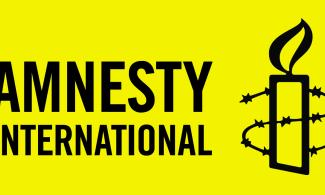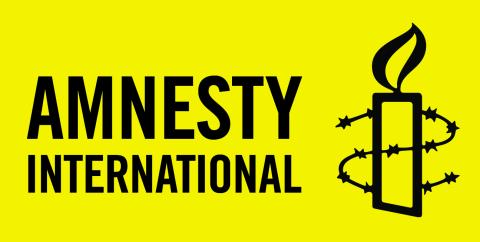
According to the report, which was corroborated by evidence gathered through interviews with former inmates in addition to videos, photographs, and satellite images, the victims may have died from disease, hunger, dehydration, and gunshot wounds.
At least twelve children under the age of six, including four babies, are among the 149 detainees that have died in the Giwa barracks in Maiduguri, Borno State in 2016, Amnesty International has reported.
According to the report, which was corroborated by evidence gathered through interviews with former inmates in addition to videos, photographs, and satellite images, the victims may have died from disease, hunger, dehydration, and gunshot wounds.
One witness told Amnesty International that they saw the bodies of eight dead children, the youngest of whom was only five months old.
Two more former detainees said that two boys and one girl, no more than two years old, died in February 2016.

Amnesty International estimated that roughly 1200 people are still detained in Giwa and at least 120 of them are children. Children under five are being held in three women’s cells, each containing up to 250 inmates.
“The discovery that babies and young children have died in appalling conditions in military detention is both harrowing and horrifying. We have repeatedly sounded the alarm over the high death rate of detainees in Giwa barracks but these findings show that, for both adults and children, it remains a place of death,” said Netsanet Belay, the Amnesty International Research and Advocacy Director for Africa.
The report cited unsanitary conditions in overcrowded cells as a leading cause of death. The cells do not have beds, toilets, or baths and are rarely cleaned, which facilitates the spread of disease.
“No one has a shirt so you can count the ribs of their body. There is no cleaning, so you live in disease,” a former inmate told Amnesty International.
“It is like a toilet. Me and my brother were sick inside the cell. Diarrhea was common,” he added.
These unsanitary conditions led to a measles outbreak among the detained children. According to a 40-year-old witness, soldiers ignored pleas for medical attention until three children died.
Inmates were also poorly fed and given only a half liter of water each day,
“It is hunger and thirst and the heat – these are the main problems,” one former detainee told Amnesty International.
“There is a small plastic bowl for food. People use it for small children. It is just that for each meal,” another witness added.
Prisoners also died due to gunshot wounds, the report stated. Out of the 136 men who have died in the Giwa barracks in 2016, 28 had apparent gunshot wounds.
Photographic and video evidence also revealed that inmates’ corpses were buried in mass graves, according to Amnesty International.
“Bodies were brought to a mortuary in Maiduguri and from there, Borno State Environmental Protection Agency (BOSEPA) personnel took them in rubbish trucks for burial in unmarked mass graves in the Gwange cemetery,” the report reads.
It would be recalled that most of the inmates were arrested arbitrarily for their alleged involvement in terrorist or insurgent activities and were not given a trial before being imprisoned. To date, over 4700 detainees have died in detention, according to Amnesty International.
Read the full Amnesty International report below:
